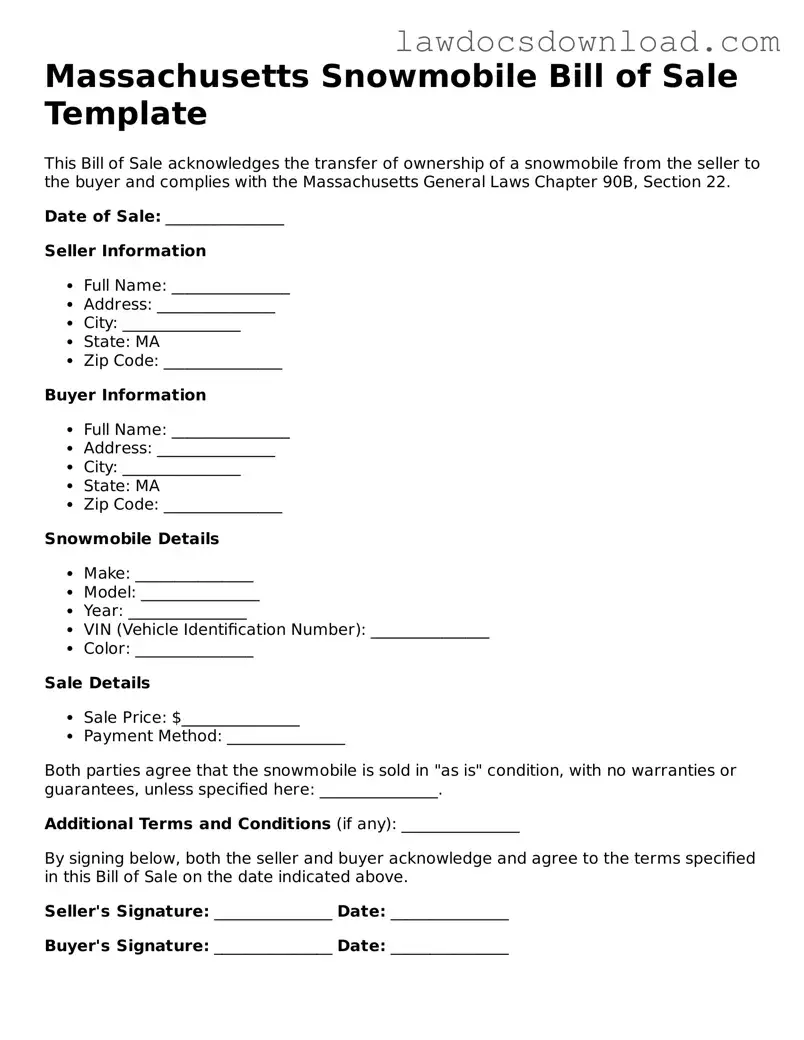The Massachusetts Snowmobile Bill of Sale form shares similarities with the Vehicle Bill of Sale form, primarily due to their function in recording the sale of personal property. Both documents serve as legal evidence that a transaction has taken place, detailing the transfer of ownership from seller to buyer. These forms typically include information about the item being sold (make, model, year), the sale price, and the names and signatures of the involved parties. Their primary purpose is to protect both the seller and buyer, providing a record that can be used for registration, legal, or tax purposes.
Comparable to the Boat Bill of Sale form, the Snowmobile Bill of Sale document is essential for transactions involving specific types of recreational vehicles. Similar to boats, snowmobiles require proper documentation for ownership and registration purposes. Both forms capture critical details about the sale, including the identification of the vessel or vehicle, the agreed-upon sale price, and the particulars of the buyer and seller. This documentation is often required by state agencies for registration and titling, ensuring that all recreational vehicles are legally accounted for.
Another document similar to the Massachusetts Snowmobile Bill of Sale is the Firearms Bill of Sale. Though it covers a different type of property, the purpose and structure of the document are similar. It serves as a legal record of the transaction, detailing the exchange of ownership of a firearm from seller to buyer. The form includes descriptions of the firearm, including serial number, make, and model, in addition to the personal details of the transacting parties. This document is crucial for adhering to state laws regarding the private sale and transfer of firearms, ensuring a record of ownership exists for legal and safety reasons.
The General Bill of Sale form also shares similarities with the Snowmobile Bill of Sale, as it is used for a wide variety of personal property sales, from electronics to furniture. What makes it akin to the snowmobile version is its role in documenting the sale and transfer of ownership. This form provides a means to specify the item being sold, the sale price, and the parties involved, alongside the date and signatures. It’s a versatile document that acts as a receipt for private sales, helpful for personal record-keeping and legal proof of ownership transfer.
Last but not least, the Equipment Bill of Sale form parallels the Snowmobile Bill of Sale in aspects of utility and application. This document is typically used for the sale of heavy or valuable equipment, capturing details similar to those in the snowmobile document, such as a description of the equipment, sale price, and identity of the buyer and seller. Essential for both the seller and the buyer, the Equipment Bill of Sale provides evidence of the transaction, aiding in the legal transfer of ownership and potentially affecting tax considerations.

